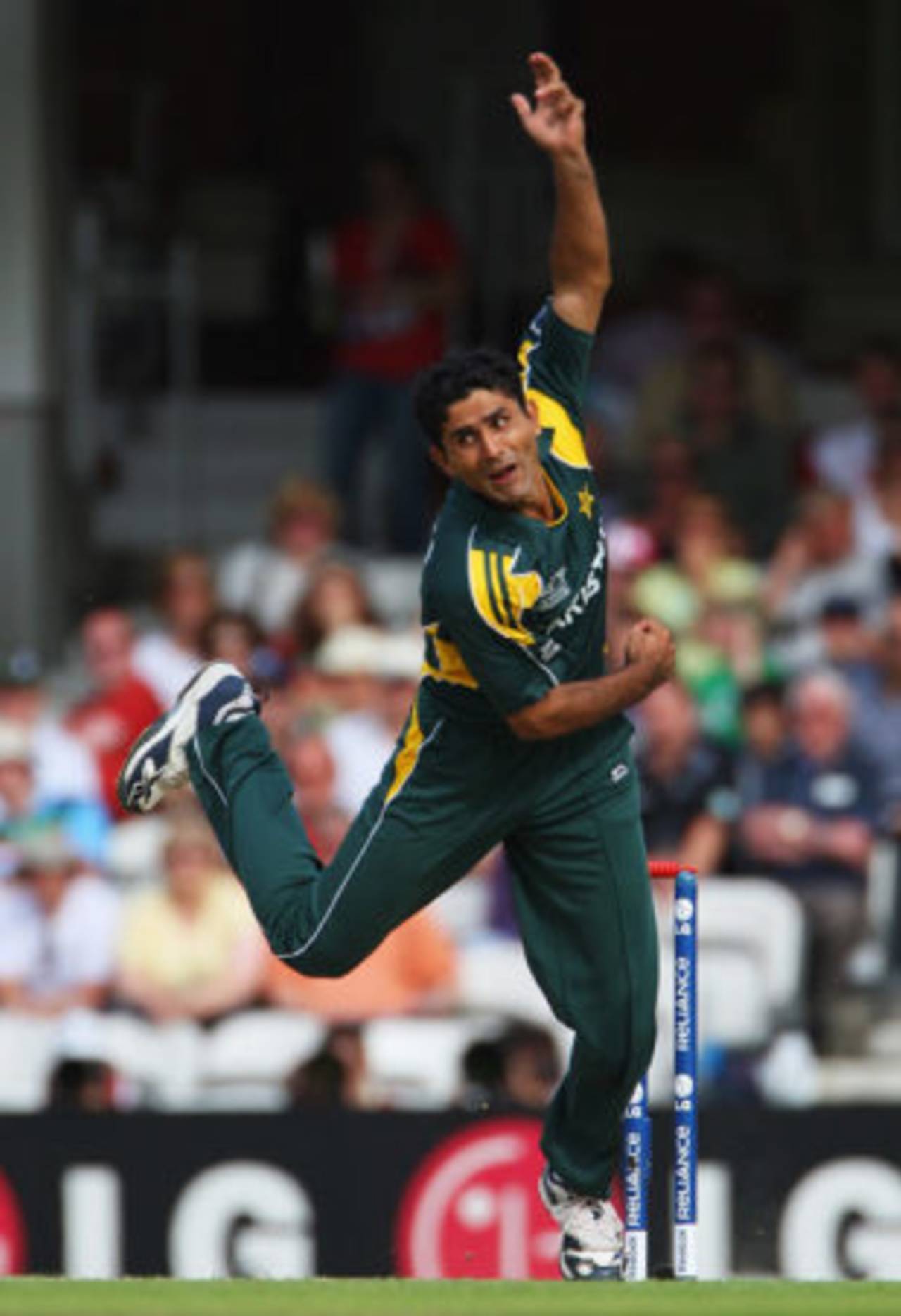How Razzaq's return made a difference
The Pakistan allrounder is happy to take the new ball and keen to work on his fitness as he joins the national side after two years away
Nagraj Gollapudi
Jun 20, 2009, 5:14 AM

Getty Images
Now that he is back on the international track, Abdul Razzaq can't stop talking cricket. Barely minutes after reaching London, following a two-hour bus ride from Nottingham, Razzaq is in the hotel lobby, picking the brains of Pakistan's bowling coach Aaqib Javed. Aaqib is weary and desperate to get into his room, which is taking rather long to get cleaned up. In contrast, Razzaq is fresh and eager, having left his wife, two young kids and the kitbag in the room.
"I was thinking I should work more with the old ball. I feel a little stiff, too," Razzaq points out to Aaqib in Punjabi. Aaqib thinks for a moment before nodding. Both agree things will pick pace with time. It is easy to sense at the moment that more than anything Razzaq is searching for motivation from his team, having left it two years ago.
Razzaq's game against New Zealand last week in the Super Eights was his first for Pakistan immediately after he had cut ties with the unauthorised ICL. He had joined the ICL having decided to retire in frustration as the Pakistan selectors dropped him from the inaugural World Twenty20 in 2007. Little did he imagine that he would bounce back, and play a crucial role in Pakistan's route to the final of the second edition of the tournament.
Razzaq replaced the injured Yasir Arafat and played New Zealand, barely 24 hours after flying into London. Obviously he was gripped by nerves. Luckily Wasim Akram, his former Pakistan captain and bowling legend, walked up to him minutes before the game to help him relax. "It was nice of him [Akram] to speak to me. He understood he didn't need to tell me about my bowling as I've played 250-odd ODIs [237] but the talk did motivate me," Razzaq said.
Between being asked to join the squad in England and playing New Zealand, Razzaq decided to keep an open mind about his role in the team. "When I left Pakistan [to join the team in England] I was willing to fit into any role."
Little did he know that Younis Khan would tell him to take the new ball. With Sohail Tanvir off colour in first three games, Pakistan desperately needed a senior strike bowler to complement the talented left-armer Mohammed Aamer. Younis admitted it was a brave move on his part to gamble with the experienced Razzaq. Still it was a well-thought out move.
When he ran in for that first ball, Razzaq had made sure he had kept his mind positive. "I was not nervous. I backed myself a lot and never allowed any negative thought to enter the mind like 'I'm coming back after two years and what would happen'." His impact was immediate: Pakistan managed to keep New Zealand tied down during the Powerplay overs, which Aaqib repeatedly mentions as the most pivotal period in a Twenty20 match. Before Razzaq replaced Tanvir, Pakistan were lagging behind in the first six overs: 63 for 2 v England, 37 for 1 v Netherlands and 65 for 0 v Sri Lanka. Once Razzaq came on board, Pakistan took control: 37 for 3 v New Zealand, 37 for 1 v Ireland and 40 for 1 v South Africa.
"We want a good start in the Powerplay from Aamer and Razzaq," Aaqib said. "He [Razzaq] has a big, big responsibility due to his experience."
Razzaq, who Shahid Afridi reckons is one of the best allrounders in the game, is not shying away. "I understand it is a challenge to start with the new ball, but it is the team's requirement so I have to bowl in the first six overs," Razzaq said. "The key is not to give runs. That is the most important thing to succeed for a bowler in Twenty20."
Going into Sunday's final, Aaqib's only concern about Razzaq is his lack of pace since he is feeling a little tired. But Aaqib is not after some quick-fix solution that will boost Razzaq's speed. If anything, Aaqib is confident about Razzaq's sharp bowling acumen. "He is an intelligent bowler," Aaqib said. According to him Razzaq can mix the deliveries along with his natural inswinger into the right-hander. "He also uses the slower ball cleverly, so that could be very crucial in the first six overs."
Another positive Razzaq brings to the team, Aaqib said, is his ability to hit the yorker-length balls. "He is one of the few batsmen who can hit big off yorker-length delivery. In Twenty20 cricket most bowlers cramp the batsman for space and Razzaq is so good to score big still."
After spending two years in the minor-league cricket witnessed in the ICL, Razzaq admits international cricket has become fast and fitness is the most important thing for a player now. Clearly, that's his priority. "My aim is to lift my fitness to the required level."
And if he can get fit he can gain the desired pace, too. "I'm not bothered about the speed. When the fitness is achieved, speed will increase simultaneously."
Nagraj Gollapudi is an assistant editor at Cricinfo